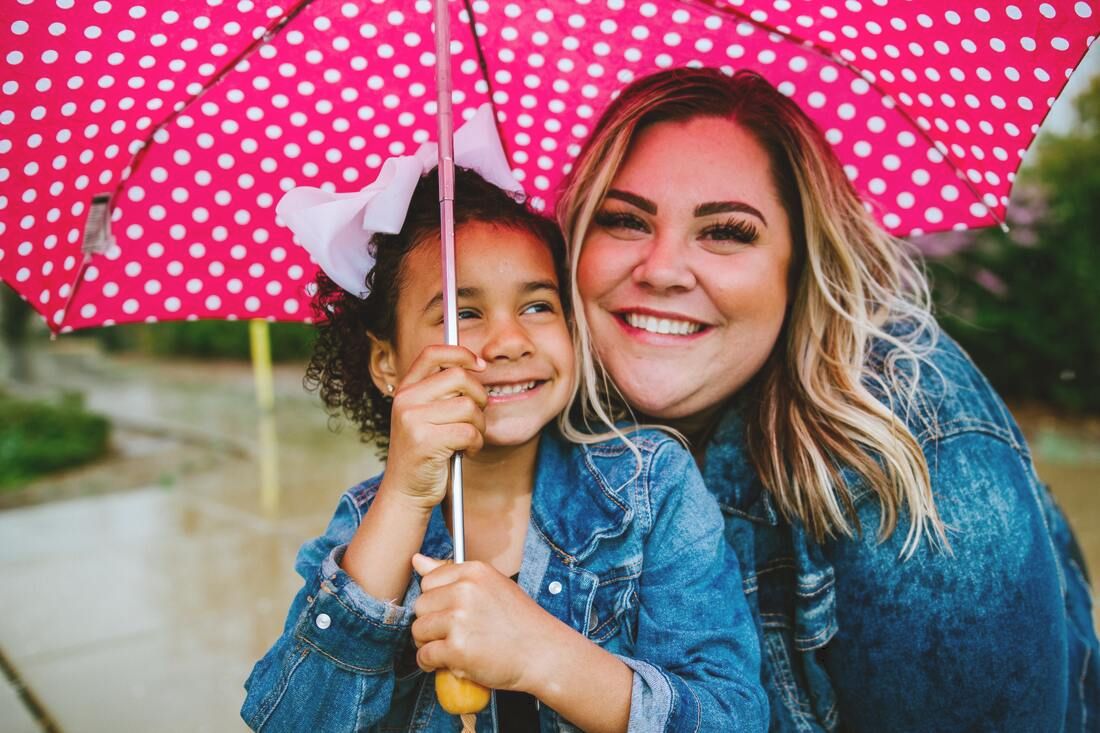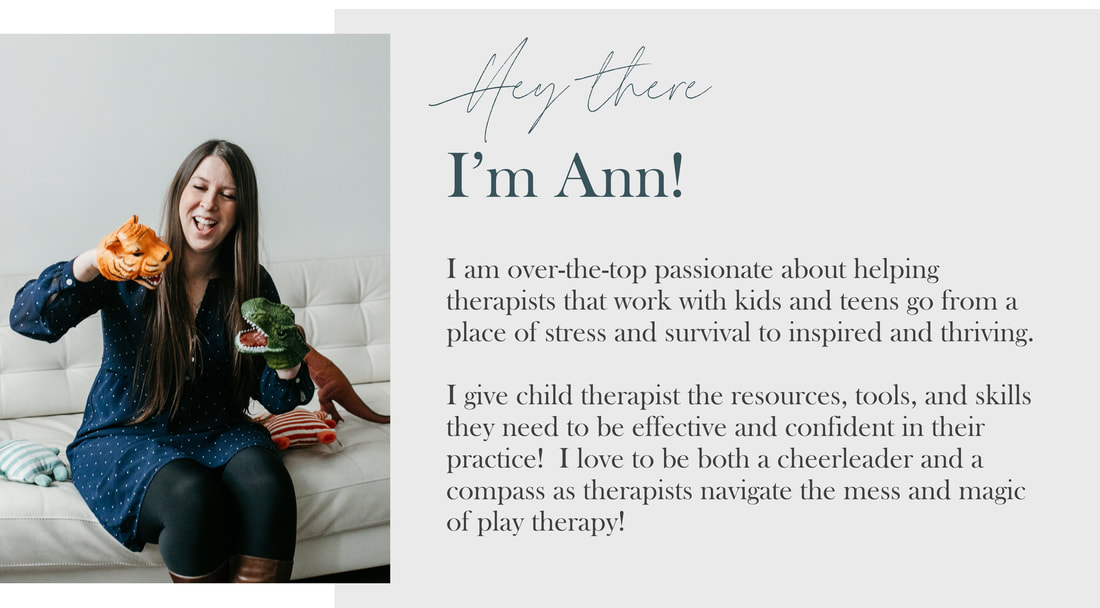The Power of Parent Engagement: 8 Reasons Why Parent Involvement is Essential in Play Therapy2/8/2023
How often do you invite parents into the playroom?
Every so often? When parents request it? When the treatment plan is due? *gulp* Never?
Now, your specific play therapy theory and modality will dictate how often you check in with parents and what you do during that time. For me? I check in with parents each and every appointment. See more about my check in process HERE!
SO, what if I told you that involving parents in their child’s therapy is not just a nice thing to do, but it is essential for mental health treatment and progress? Kids do better when their parents are involved, period. If your having some doubts check out this research article HERE that found that parent based interventions alone (ie. the therapist never saw or treated the child directly) were just as effective as CBT with children. AND as a therapist and Play Therapist that has served many populations and played in many places including school based clients, where I had very little access to parents, to private practice where I have a LOT of access to parents, I have noticed a couple of things that I think contribute to parent involvement being associated with more effective outcomes. I wanted to share the 8 reasons why I think involving parents in a child’s therapy is essential: The Attachment Relationship Parents and caregivers are the most important people in their child’s lives. If there is insecure attachment or attachment disruptions, working on increasing security in attachment can help with all sorts of mental health difficulties. Parents Are Co-regulators And since being a parent doesn’t come with a co-regulation manual (you can grab one of those HERE) sometimes parents… struggle. Participating in therapy can help parents increase their ability to co-regulate, promote self-regulation, and understand and support their child with triggers to big emotions. Parents Need Skills Too Children can’t change in isolation. It is an amazing concept that sometimes parents and systems put pressure on children to do all the changing! And when children's behaviors are tough, challenging, or leave parents feeling helpless they might need support on what they should actually do in the moment to support their child. Sometimes that looks like co-regulation, sometimes that looks like limits and boundaries or consequences. Helping parents troubleshoot what skills to use when can be invaluable to supporting a child’s mental wellness. Children Don’t Control Their Environment Adults who come to therapy typically have a high level of control in their lives. They decide where they live, their job, routine, and have access to transportation. Ohh.. and they can stay up as late as they want scrolling on their phones or binge watching their favorite show. And kids? Well most of the time they have very little tiny bits of control. And, sometimes the system needs to change. In my office I’ve processed smaller environmental changes such as a morning routine to large changes such as switching a bedroom around or a parent needing to advocate for their child at school. These environmental changes that may have a big impact on mental health can’t be done without a parent or caregiver! Parents and Caregivers May Need A Shift in Perspective Parents and caregivers come to therapy with all sorts of ideas of why their child is “acting the way they are”. Sometimes parents need a shift in perspective through meeting with their child’s therapist to understand that attention isn’t a dirty word (ie all kids need attention), how to decipher what’s underneath the behavior, and why kids might turn up the volume. Parents Buy In Equals Greater Attendance I can’t tell you how many times I have heard parents refer to therapy a sibling is having or a past therapist by saying “I don’t know what they are doing in there”. Little contact with a therapist means parents and caregivers don’t have an understanding of how the interventions in therapy lead to changes outside of therapy. Parents may feel disconnected or develop thoughts that their child’s therapist is judging them or insecurities about what is happening in the session. All of this can lead parents to not seeing therapy as important. This can trickle down to how the child sees and is invested in therapy OR by the parent not making attending appointments a priority. AND if a child doesn’t attend, well… it’s hard to get any therapeutic work done. Parent Engagement Leads to Greater Follow Through Kids, who don’t have a fully formed prefrontal cortex, typically struggle with (and rightfully so!) executive functioning tasks of remembering and executing tasks and homework. Maybe homework included talking to a teacher, using assertiveness statements with a sibling, or scheduling a fun activity on the calendar. When parents know what a child is working on in therapy, kids are more successful in actually doing those things when at home and in their daily life. Parents and Caregivers Need Support Too Parenting is a hard job. Sometimes parents need validation that sitting with and working through their child’s behaviors and distress is difficult. Sometimes parents don’t have another person in their life that they can express frustrations and hopelessness too about their child. Holding parents so they can hold and support their children is one of the important tasks in child therapy. And as always we can refer parents who need more support than what makes sense in the context of their child’s therapy to their own individual therapist. If you are looking for more support in your work with parents and caregivers in the playroom check out my course Holding Systems: Supporting Parents and Caregivers in The Playroom! Loading...
0 Comments
Leave a Reply. |
Hi, there!I'm Ann Meehan, an LPCC, Loading... Archives
July 2024
Categories
All
|
Privacy Policies | Terms of Use | Disclaimer
Contact
[email protected] | Copyright Meehan Mental Health Services 2022
Contact
[email protected] | Copyright Meehan Mental Health Services 2022







